Description
Product information – click here
Lactobacillus acidophilus (La-14)
Lactobacillus acidophilus is a beneficial bacterial strain that is normally found in the intestinal tract and mouth and is commercially used in dairy products for the production of acidophilus-type yogurt. L. acidophilus ferments various carbohydrates to produce lactic acid, which increases the absorption and bioavailability of minerals. This includes calcium, copper, magnesium and manganese. The production of lactic acid also promotes health by creating an inhospitable environment for invading bacteria. L. acidophilus has been shown to protect intestinal cells by competing for adhesion space in the gut against harmful bacteria. The L. acidophilus strain in Ortho Biotic® has been specifically chosen because of its strong adherence and survival attributes in the GI tract. It has been demonstrated in vitro to tolerate exposure to gastric acid and bile salts, and has the ability to withstand certain medications.
Lactobacillus paracasei (Lpc-37)
Lactobacillus paracasei (L. paracasei) has an important role inhelping to maintain the balance of microflora in the intestine.L. paracasei has been shown to protect against the harmfuleffects of bacteria such as Staphylococcus aureus (S. aureus), and reinforce defense mechanisms that support an immuneresponse. L. paracasei is highly resistant to acids and enzymesin the GI tract and is known to produce short chain fatty acidsfor healthy intestinal barrier function.
Bifidobacterium bifidum (Bb-02)
Bifidobacterium bifidum has been shown to effectively compete with harmful bacteria, which suggests B. bifidum‘s lactic acid and acetic acid production provides an antagonistic action against such undesirable agents to help maintain microflora balance.
Bifidobacterium lactis (BI-04)
Bifidobacterium lactis is predominantly found in the colon. A double-blind, randomized placebo-controlled trial on subjects receiving B. lactis or placebo for eight weeks found that B. lactis supported a balanced immune response in individuals hypersensitive to environmental allergens. Studies examining immune development and dietary supplementation with B. lactis have shown that it supports GI health by reducing intestinal permeability.
Lactobacillus plantarum (Lp-115)
Lactobacillus plantarum is a beneficial bacterial strain commonly found in fermented foods including sauerkraut, pickles, brined olives and sourdough. L. plantarum has been found to compete against strains of harmful bacteria, due to the production of bacteriocins (lethal proteins) that inhibit bacterial growth. Studies have also demonstrated that L. plantarum helps boost the immune response by stimulating Th1-mediated immunity.
Lactobacillus rhamnosus (GG)
Lactobacillus rhamnosus has been proven to have remarkable survivability in the acid and bile environments in the GI tract. L. rhamnosus is particularly useful because of its ability to adhere to cells, enhance microflora balance, and inhibit pathogen adherence. L. rhamnosus was also found to positively affect inflammatory and immune gene signaling of over 1,700 genes when administered in high doses.
Saccharomyces boulardii
Saccharomyces boulardii is a probiotic yeast that was first isolated from the skin of the tropical fruits lychee and mangosteen in 1923 by French scientist Henri Boulard, following the observation that mangosteen consumption controlled occasional diarrhea in natives of Southeast Asia. S. boulardii plays a role in supporting immune defense by increasing levels of sIgA, creating a first line of defense that helps bind and clear harmful bacteria.
*These statements have not been evaluated by the Food and Drug Administration. This product is not intended to diagnose, treat, cure, or prevent any disease.

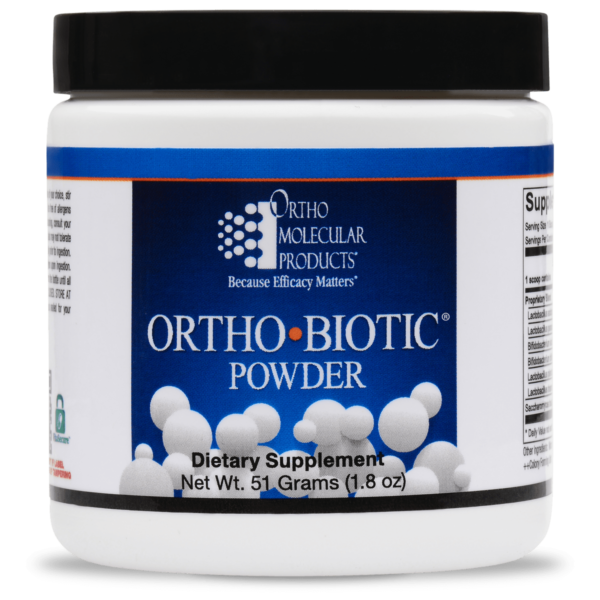
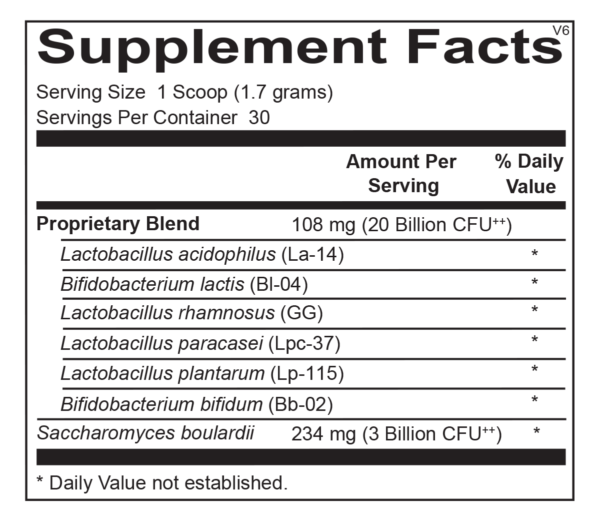
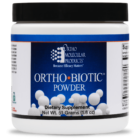
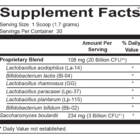





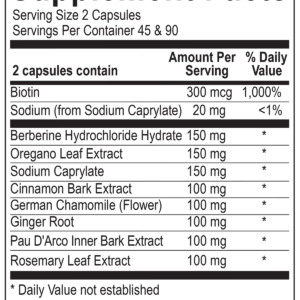
There are no reviews yet.